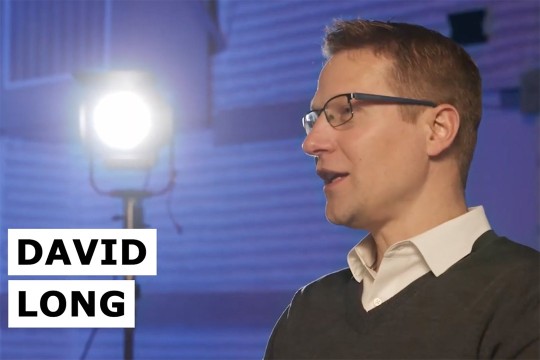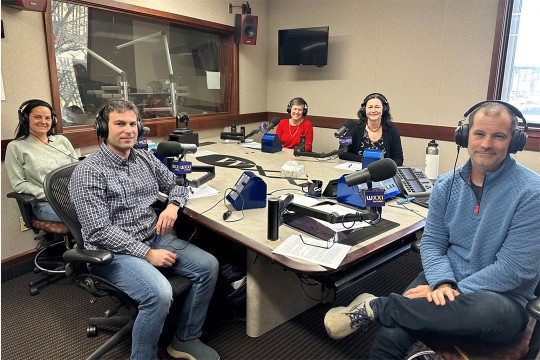Prof shares new-found law expertise with class
A. Sue Weisler
RIT telecommunications engineering technology professor Bill Johnson
Bill Johnson spent the past three years in a new role. The telecommunications engineering technology professor became the student—not the teacher. Johnson has just returned from a sabbatical in which he completed his law degree at the University at Buffalo. And now he’s poised to share his new knowledge with his RIT students.
Johnson is teaching a new course, Patents and Trade Secrets, which he hopes is the first in a series of new classes he will be instructing on technology and the law. “I’m hoping to provide our students with what I wish I knew, that I didn’t know, coming out of engineering school,” Johnson says. “These courses aren’t for lawyers. They are for students across the board. You’ll still have to consult a lawyer in a lot of instances, but it’ll save you a lot of money if you have an understanding of the law, and it won’t take you three hours to explain a situation that could be explained in 15 minutes.”
The course is being offered out of the College of Applied Science and Technology, but Johnson hopes to attract students from across the university. Anyone who may face a situation in which they want to file for a patent could benefit from the course, Johnson says. “We come across case studies all the time where people do something that seems pretty reasonable, and they end up losing their patents because of it,” he says. Johnson cites one case study where an individual distributed his invention to friends and colleagues to test his device. Doing so resulted in him losing his patent. “You can’t get a patent if the product was in use by the general public. If you don’t maintain tight control and get nondisclosure forms or a confidentiality agreement, then it is no longer experimentation,” Johnson says. “You just gave away your invention. Not everything you think is a great idea is legally supportable. You have to know where the boundaries are.” The course is scheduled to be offered again in the spring semester.















